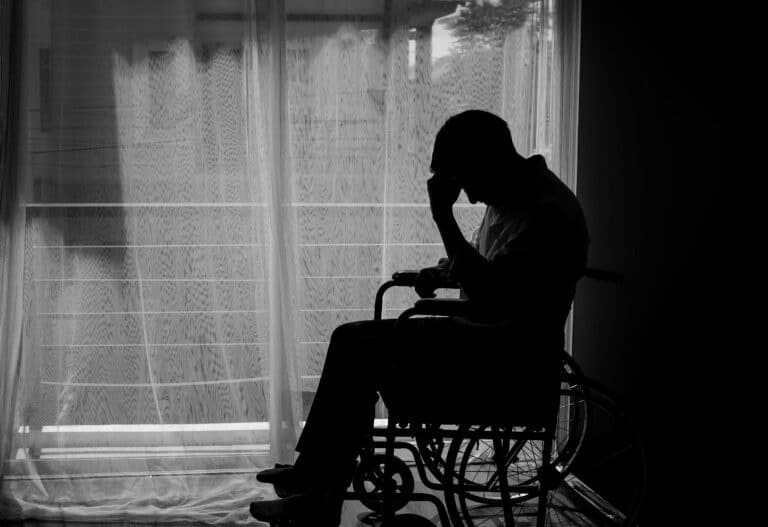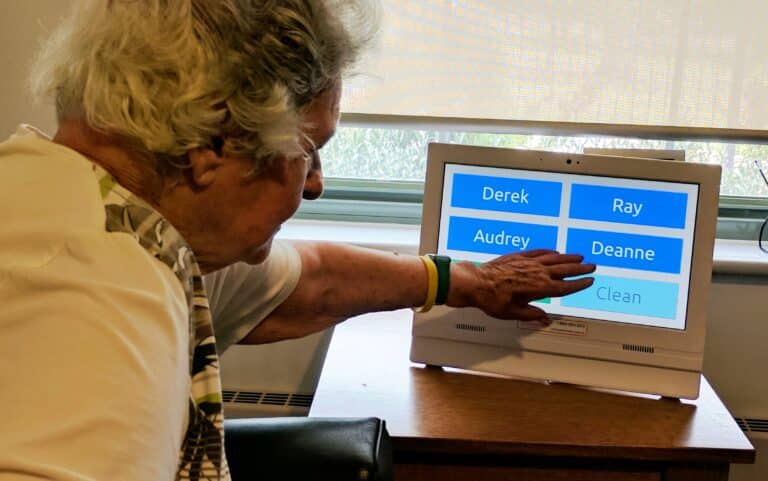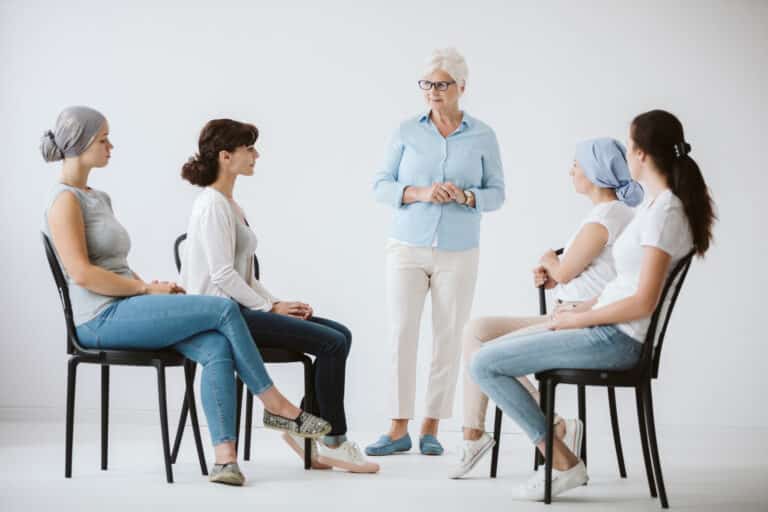Living Alone with Cancer
It shouldn’t come as news to you, the reader of this article, that social isolation is a challenge ever-increasing in complexity for those managing disability, age-related illness, and other concerns regarding general health.
Likewise, social isolation – as well as other health and emotional-related challenges – is a common experience amongst individuals living with cancer.
How living alone with cancer can affect health
It’s widely understood that cancer is a challenging condition that can cause physical limitations, emotional distress, and financial strain, all of which can contribute to feelings of isolation.
People who are living alone with cancer may also experience additional challenges related to their social-emotional and physical health.
Challenges of Solo Cancer Warriors
- Limited social support
- Lack of physical connection to others
- Difficulties with emotional regulation
- Challenges with practical daily tasks
- Loss of friends given their challenging health circumstances and need to withdraw from social occasions
- Lowered ability to communicate openly or regularly

In society currently, people with a cancer diagnosis may also choose to stay home more regularly, isolating by choice in order to avoid exposure to COVID-19 and other transmissible viruses.
It is important to understand how best to support someone living with cancer in the family, and how to help those who, due to whatever circumstance, are dealing with cancer alone.
In this article, we’ll look at three of the most helpful and cost-effective ways to assist someone living alone with cancer to live a healthier and more fulfilling life, including:
- Offering practical assistance
- Using assistive communication technology (such as devices by Konnekt)
- Enlisting with purpose-created organizations and cancer support groups
How to support someone living alone with cancer
According to the Australian Institute of Health and Welfare, approximately 70% of people with cancer in Australia live alone.
In the United Kingdom, Macmillan Cancer Support found that nearly one in four cancer patients feel lonely and isolated upon receiving their diagnosis.
Likewise, in the United States, the National Cancer Institute estimates that there are currently over 16 million cancer survivors, many of whom may be dealing with cancer without the support of family, friends or loved ones.
These statistics, as well as countless other research papers, serve to highlight the vast importance of providing support and assistance to individuals living alone with a cancer diagnosis.
Here are our top three suggestions for making it happen:
1. Offer practical assistance
There are several ways to support someone with cancer in the family. One way is to offer practical assistance.
Practical assistance is often one of the most simple yet effective ways of offering support to someone living with a health challenge as it cuts down on the time your loved one needs to dedicate to such challenging tasks, leaving more time for rest and recovery.

Examples of practical support in the home
- Providing transportation to appointments
- Buying and delivering groceries
- Helping with (or arranging) cleaning and cooking
- Assistance with laundry
- Taking pets for walks
- Joining in on telehealth calls
What’s more, providing practical support can also help alleviate some of the physical and financial burdens that come with cancer treatment and the lifestyle that follows.
Additionally, offering emotional support and being an empathetic and understanding listener can also be of invaluable assistance to someone dealing with cancer alone.
2. Use assistive communications technology
One of the greatest challenges faced by those living alone with cancer is finding the strength, energy and will to stay in touch with those close to them.
This can be due to many factors, including:
- Not wanting to “burden” loved ones with additional emotional stress
- Feeling too ill to communicate
- Not owning the appropriate technology
One of the most simple, cost-effective methods of encouraging your loved one to stay in touch during their cancer diagnosis is to ensure they have the appropriate technology to do so.
The Videophone and Captioning Videophone by Konnekt are purpose-created assistive communication devices that include a range of fantastic features to support those living alone with cancer.
Features of Konnekt Products
- “One touch to call” function
- Extra large touch-screen for easy viewing
- Capability for extra-loud volume, if needed
- Calls any device including all telephones and mobile phones
- Auto-answer for trusted callers, to increase safety and assist independent living
- Voice-reading and lip-reading capability, with fast and accurate captioning in multiple languages (Captioning Videophone only)

Plus – our Videophones are a fantastic way of helping your loved one maintain their energy and dignity while they work through what is likely one of the most challenging phases of their lives.
3. Enlist with support organizations and groups
In addition to offering practical assistance and ensuring your family member has direct access to appropriate communication technology, there are also various organizations and support groups that can provide support to individuals living with cancer.
In Australia, the Cancer Council offers a range of support services, including counseling, support groups, and practical assistance.
If you live in the United Kingdom, Macmillan Cancer Support provides information, emotional support, and practical assistance to people affected by cancer.
For those in the United States, the American Cancer Society offers support groups, online resources, and a helpline for individuals living with cancer.

In addition to these resources, there are also several online support groups and forums for people living with cancer such as those made available locally, and on social media networks. Your local cancer support organization should be able to help you locate and access these.
Support groups can be a great way for individuals who are dealing with cancer alone to connect with others who are going through similar experiences.
How to manage living alone if you have a loved one living with cancer
Still looking for ways to support your family member?
It’s important to remember that everyone’s experience with cancer is different and there is no one-size-fits-all approach to providing support. It is essential to be understanding and respectful of the individual’s needs and preferences.
To find out more about Konnekt’s products or to have an obligation-free discussion with our team about best-fit options for you and those you love, visit our website and we’ll get right back to you.
We can’t wait to meet you.
References:
- “About Us”, Cancer Council Australia
- “Cancer”, Australian Institutde of Health and Welfare
- “Cancer Statistics”, National Cancer Institute
- “The Loneliness of the Long-Distance Cancer Patient”, MacMillan Cancer Support
